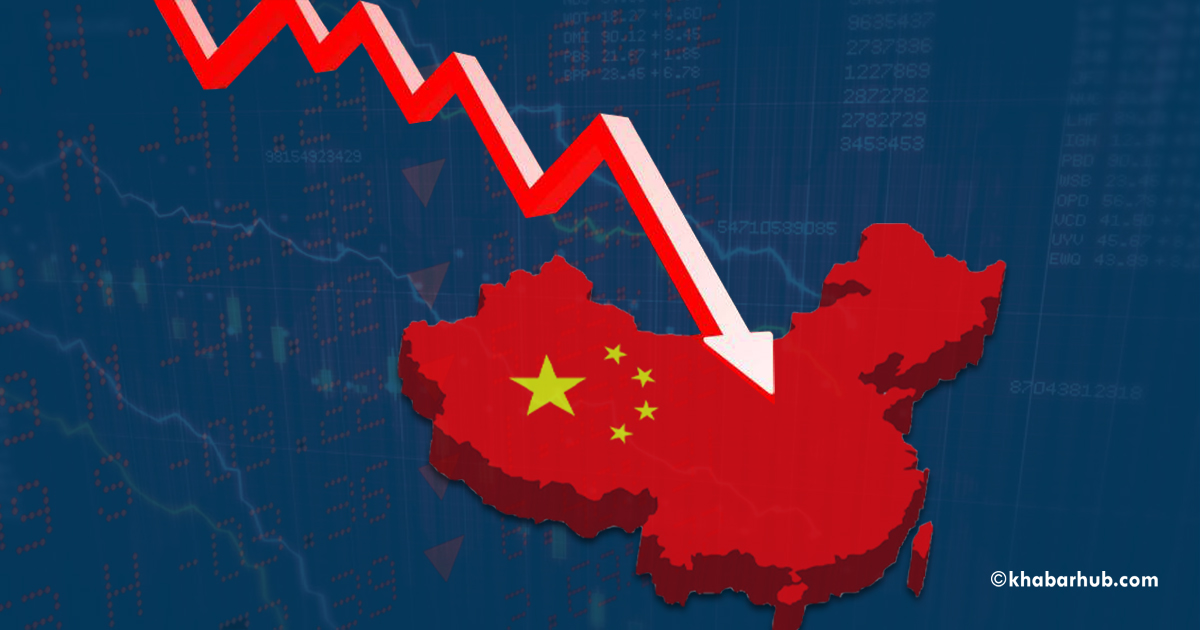KATHMANDU: Realizing that China seems to intensify the strategies of bagging the COVID-19 suffering foreign companies, several countries have started changing their legal provisions related to foreign investment.
Viewing that China has been buying the shares of foreign companies in crisis due to the COVID-19 pandemic, many countries of the world have made some changes in their laws related to foreign investment in the companies.
Several EU and the US companies have started to leave China, and more will follow-suit after the pandemic.
This means that the Covid-19 will bring down the final curtain on China’s around 30-year role as the world’s leading manufacturer.
Reports are that several Chinese chemical plants and auto manufacturers have reported more closures in recent times. Even logistics and shipping companies have reported higher closure rates. The ripple effects of this disruption will certainly be felt.
Given the increasing distrust of China across majority of the Western countries and also in other parts of the world, calls to disengage with China have multiplied. The US, too, has taken steps to reduce its dependence on China.
With this, there has been an increasing awareness in other countries as they believe are at higher risk because of their dependence on China for medical supplies.
Germany, India, Taiwan, South Korea, and several EU countries have clamped down on exports from China over worries that their supplies will fall short.
Under the guise of playing the leader in coronavirus pandemic issue, China seems to have a two-pronged agenda: claim sovereignty over the disputed land in the South China Sea, intimidate Taiwan and assert more authority over Hongkong; and take advantage of vulnerable countries in Asia and Africa that are struggling to cope with the coronavirus and its economic impact by offering much-needed debt relief- but only if those countries provide most valuable national assets as collateral.
With the realization of China’s deception in managing the coronavirus pandemic, several western countries, including the EU and the US, have challenged the country’s policies and narrative.
In fact, the western countries have started re-evaluating their relationship with China for its double standards and attempts to coerce. This, as observers note, will lead to erosion of globalization.
This means that the rejection of globalization would adversely affect China’s economy and its plans to become a world economic leader at a time when the Chinese economy is faltering.
Spain has amended its then existing FDI strategy on March 17. The new strategy adopts urgent and extraordinary measures to mitigate the socio-economic impact of the COVID-19 outbreak.
Recently, the European Union (EU) issued guidelines concerning Foreign Direct Investment on March 25, which reflect the strategy of EU nations, alarmed at the ill-intent foreign direct investors.
In a communication, the EU has noted that such an unprecedented pandemic might expose businesses involved in the healthcare industry to potential takeover attempts via FDI which could negatively impact the EU’s capacity to cater to the health needs of its citizens.
Spain has amended its then existing FDI strategy on March 17. The new strategy adopts urgent and extraordinary measures to mitigate the socio-economic impact of the COVID-19 outbreak.
Several European countries such as Spain, Italy and Germany have tightened their Foreign Direct Investment rules in the light of the latest events to avoiding a hostile takeover by Chinese firms.
The EU’s move of a full-blown battle against the Chinese regime must have surprised Beijing as it might not have anticipated — given the huge trade imbalance with the European Union.
Moreover, several countries have prepared themselves to protect themselves from the rapacious Chinese companies.
The USA has also activated the committee to restrict foreign investment in there. The newly passed bill is meant to stop predatory acquisitions by China during COVID-19. The USA has been prophesying it as for the national security of the country.
Most importantly, the countries are trying to bring back their corporate activities back to domestic soil as they, particularly the US and EU are dissatisfied with their dependence on drugs manufactures in China, especially during the coronavirus pandemic.
In such a situation, and as an act while responding to this, special measures have been taken with regard to some foreign direct investments in Spain, according to the new regulation.
The new regulation states that, as a condition precedent, the investments described shall be subject to the prior administrative authorization granted by Spain’s government under the conditions established by the competent administrative authority i.e. the regulator of the affected strategic sector.
In response to the COVID-19, emergency and also following EU Commission guidelines issued on March 25, 2020, the Italian government issued Law Decree No. 23 of 2020 (the “Decree”), containing special measures for the protection of Italian assets. Italy has enforced the Golden Power Law on April 2020.
The decree expands the strategic sectors governed by the so-called “Golden Power” law on the review of foreign investments in Italian assets.
China’s international relations are now deteriorating. Most importantly, this is sure to further accelerate in the wake of the pandemic.
As amended with this Golden Power Law, the Italian government has the power to prohibit or impose restrictions/conditions to an investment by foreign persons in certain industries deemed strategic for Italy.
Australia has also made its foreign investment regulations much stricter though temporarily. Under the new provisions, all proposed foreign investments into Australia are to be checked as the government seeks to protect the Australian assets hard hit from the economic fallout of ongoing pandemic.
The western world is alarmed at the fact that when much of the western world locks down economies as the implications of the COVID-19 pandemic grip harder, China has made moves towards restarting its own economic activity.
This has raised concerns that distressed foreign assets could be bought without appropriate checks and balances by the stronger economy.
Despite G20’s commitment to keep foreign direct investment going during the COVID-19 pandemic crisis, Canada has tightened the foreign direct investment in its territory from April 18.
The federal government of Canada tightened FDI review for corporations in public health and those involved in the supply chains of critical goods and services. It has also lowered the threshold for review of FDI made by foreign state-owned enterprises to zero.
Similarly, the UK has also joined the race to protect businesses impacted by the coronavirus pandemic.
The UK has restricted foreign investment in military-related items, computers, hardware, quantum technology etc.unless prior to consent from the government.
The USA has also activated the committee to restrict foreign investment in there. The newly passed bill is meant to stop predatory acquisitions by China during COVID-19. The USA has been prophesying it as for the national security of the country.
For example, Kearney, a global manufacturing consulting firm, released its seventh annual Reshoring Index that showed a ‘dramatic reversal’ of a five-year trend as domestic U.S. manufacturing in the year 2019 commanded a greater share versus some 14 Asian exporters tracked in the study.
Japan also announced it would spend over $2.2 billion to get its corporations or companies out of China, and would rather spread throughout southeast Asia.
India has also changed its existing FDI policy on April 17. The latest amendment is meant to ward off the threat of ‘opportunistic’ Chinese takeover of Indian companies, whose valuation has been badly hit by COVID-19 pandemic.
This move is seen as an attempt of walling off the growing influence of China, in other words, ‘to block the threat of taking overs’.
China’s international relations are now deteriorating. Most importantly, this is sure to further accelerate in the wake of the pandemic.









Comment